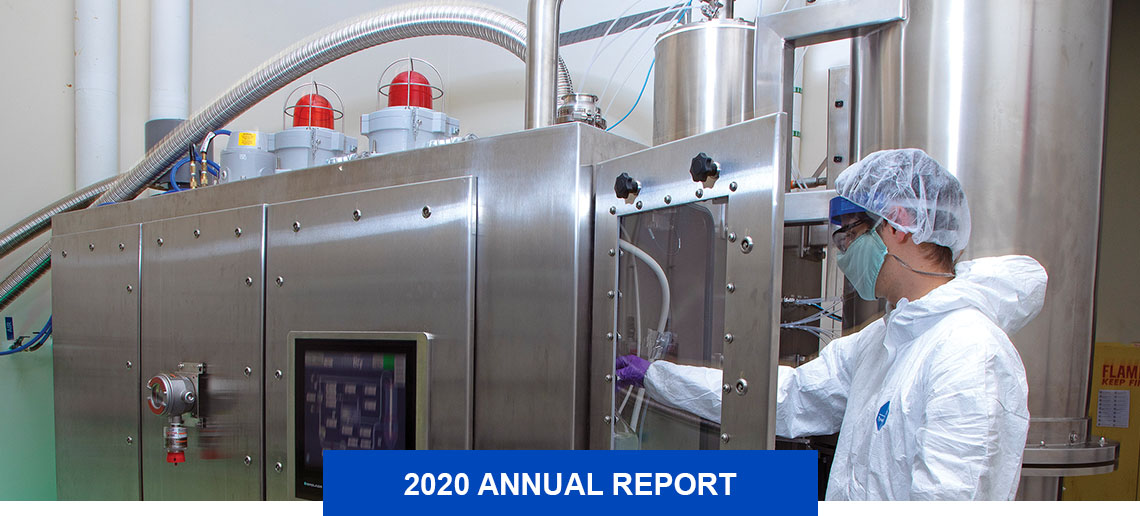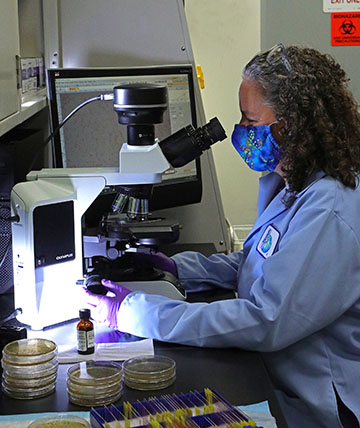
About the Header
SwRI expanded its microencapsulation capabilities, adding an advanced electrostatic spray drying system that supports low-temperature production of heat-sensitive or volatile active ingredients, from small molecules to biologicals.
Southwest Research Institute supports the healthcare industry, providing biomaterials and pharmaceutical development as well as food safety and microencapsulation research. We are leveraging our 70 years of experience in microencapsulation to meet client needs in pharmaceutical, veterinary, food, nutraceutical, agricultural and consumer products.
Our microbiology and drug development teams are collaborating with the University of Texas at San Antonio (UTSA) to develop a vaccine that protects against a potential biothreat associated with the bacteria Francisella tularensis, which causes tularemia or “rabbit fever.” To support human clinical trials, SwRI is formulating an intradermal injection using a UTSA-developed, genetically modified subspecies that offers protection against the bacteria. The goal is to develop a vaccine formulation that protects humans from tularemia for up to a year. SwRI is improving vaccine stability through chemistry manufacturing controls and using slow-release encapsulation formulations to extend immunity.
SwRI scientists continue to develop antidotes for chemical warfare agents, particularly neurotoxins that attack the central nervous system. In 2020, this Department of Defense research expanded to include investigations into using enzymatic hydrolase as a countermeasure.
SwRI has numerous facilities to help government and industry assess and address the health and safety of the public. Our microbiological, biosafety level 2 lab quickly ramped up to support numerous programs addressing the COVID-19 pandemic, while maintaining support for a range of research and standardized testing. Some of these programs advance vaccine strategies, screen antimicrobial formulations and assess new disinfectants and antimicrobial technologies.
We continue to advance SwRI-developed cell expansion bioreactors technology and its use in regenerative and personalized medicine. With the support of multiple government contracts, we developed different-sized bioreactor systems to manufacture stem cells and stem-cell-derived therapeutic products. In 2020, we improved bioreactor durability and performance to cost-effectively manufacture large volumes of chimeric antigen receptor T-cells for cancer therapy.
For more information visit Biomedical & Health.
SwRI is collaborating with UTSA to develop a novel, intradermally administered vaccine formulation that provides long-term protection against a potential biothreat. Here, microbiologists capture digital images of cultures of gram-negative-stained genetically modified bacteria.
